The truth is, there are a lot of trainers out there that suck. Your money and time while working towards your fitness goals are important, and having great experiences with solid trainers will create rewarding and beneficial experiences that will serve you and your health in the long-run. Here’s some quick and digestible guidance on finding the right personal trainer, and how to fire one if it’s not going well.
How to Find a Good Personal Trainer
Instagram photos of 6 pack abs does not a good personal trainer make.
The most important qualifier for a good trainer is someone with a lot of experience working with others that have the same fitness goals as you. And by experience, we do mean someone who has been able to apply their knowledge in the field for a significant amount of time.
Niche is important. If you’re just starting out, search for a personal trainer who’s main clients are beginners. Are you into powerlifting? Look for coaches that are specific to powerlifting.
Education is also important. In a world where someone can go through a quick certificate program to become a personal trainer, having a bachelors or masters degree in the field is definitely a bonus. Someone that is keeping up with their education in the field is important too. However, many personal trainers have continuing education that might not relate to your fitness goals. For example, an 86 year old woman with mobility issues would most likely not benefit from her trainer’s extensive kettlebell education. And remember, education itself is actually lacking to some degree if it’s not being applied with clients.
Do your homework, and look through a few personal trainers’ websites that you’re considering hiring to get a feel for their style, niche, and brand. Do they have client success stories and testimonials that are relatable to your fitness goals? How many years of experience do they have, and what are their accolades?
When you’ve picked out a few trainers that you like, sign up for some free practice sessions or a consultation. Trainers will usually give you a free trial/assessment session to see if you’re a good fit. At a big box gym, you might get a certain amount of free sessions for joining. Take advantage of that opportunity and shop around with many personal trainers.
Remember, you get what you pay for. Good trainers usually cost more…
What To Look For In A Good Personal Trainer
Here’s some information to keep in mind when searching for a good personal trainer. First and foremost, a good trainer will ask you what your fitness goals are in your first session. Your fitness and health goals dictate your training. A good personal trainer will work with you to plan for how you are going to get there together, and what those goals will look like in real time.
Also in your first session, a good trainer will give you an assessment by going through foundational movements to watch how you move. They should be assessing movement that applies to your decided fitness goals, and look for your limitations and restrictions.
They should also be asking about your injuries. Building on this thought, your trainer should always have a reason for your workout plans. You should always be able to ask them questions about your workouts, and why they designed a plan a certain way to achieve your goals. If your trainer doesn’t know how to answer a question, they should refer you to someone that does.
Inversely, your personal trainer should absolutely not come to a workout session and ask “what do you want to work on today?” If you hear this question, it shows that they don’t have a plan and aren’t programming according to your goals. Of course, there are extenuating circumstances when this piece of advice might not be true. If you’re freshly injured or feeling stressed on a certain day, a good trainer will be able to adapt to your needs.
What Do You Need From A Personal Trainer?
Tying into how to look for a good personal trainer, what you need from your personal trainer is for them to implement an individualized training program for you. They should take into account your fitness goals, the weaknesses you’re working with, limitations, age, body size, sleep, diet, stress, etc. to create a program that balances your work output with your recovery. The program a trainer puts together for you should be challenging to a point, and also prioritizing your recovery.
How To Find A Good Trainer For Online Personal Training
The same qualifications for an in-person trainer also apply to an online personal trainer. However, because you aren’t training in real time, your trainer needs to have systems in place to facilitate a solid user-friendly way (either through an app or website) to deliver your workouts.
This should include a place for you to upload videos of your workouts, a way for your trainer to see your form and give critiques, a check-in process, and a way to track your progress over time. We cannot stress this enough. Your online coach absolutely needs to have these systems in place in an organized way. We use the Truecoach app to do all of this in one place.
You also need regular feedback from your personal trainer. There’s a lot of information your online trainer is missing that is present in live in-person sessions, it’s just the nature of online personal training. It’s important for your trainer to see your movements then check-in to ask questions about your form and progress, like how a certain movement feels (maybe doing it another way would feel better) and how you would feel if your weight was bumped up next time. More periodic conversations on the phone are important too, so your coach can continue to support your big vision fitness goals.
We also suggest that your online coach has a few years of experience training in-person. In-person training develops cueing skills in real time, so your trainer can give precise and fluent cuing for your body. Your workouts will be much easier to follow.
How to Fire Your Personal Trainer
Here’s the awkward part… but first, we want to go over the top 3 questions to spot the red flags:
-
Did your trainer ask you what your fitness goals are? (“no” is the bad answer, of course)
-
Do they give you random workouts every time you come to workout with no rhyme or reason? (this shows a lack of planning for your fitness goals)
-
Do they constantly ask you what you want to work on that day? (again, not planning your workouts based on your goals)
Coming back to the dreaded conversation, the best piece of advice is to be honest. If you found someone you fit with better, say you found someone better suited for your needs and goals, and it’s nothing personal. The truth is, it’s not worth you spending your money on someone that isn’t helping you in the way you want. If you’re firing your personal trainer purely because of financial reasons, bring it up to them and see if you can work something out.
Your honesty also gives that personal trainer feedback that could help them grow and become better at what they do in the future. In general, honesty has a way of doing this.
Personal Training with Barpath Fitness
At Barpath Fitness, we have over 25 years of combined coaching and personal training experience and two masters degrees under our belts. We have tons of client success stories, and are bringing different niched coaches into the fold. Check out our remote coaching, nutrition coaching, or our Instagram page to see if we’re the right fit for you.
If you’d like to learn more about finding a good personal trainer, check our our Stronger Than Your Boyfriend podcast, Episode 48: How To Find A Good Personal Trainer & How To Fire One



